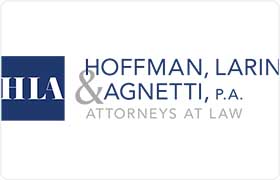Monroe County, FL Bankruptcy & Debt Lawyers
Sponsored Law Firm
-
 x
x

Click For More Info:
-
Hoffman Larin & Agnetti, P.A.
909 N Miami Beach Blvd Suite 201 Miami, FL 33162» view mapBankruptcy and Debt Experience and Results Matter
Hoffman, Larin & Agnetti have offices in South Florida. We have a long list of satisfied, well-represented clients since our firm opened in 1975.
800-893-4280
Mark Allen Hruska
Insurance, Commercial Bankruptcy, Personal Injury, Medical Malpractice
Status: In Good Standing
Robert Bachrach Goldman
Civil Rights, Bankruptcy, Construction, Divorce, Contract
Status: In Good Standing Licensed: 45 Years
Joseph M. Albury
Trusts, Family Law, Corporate, Credit & Debt
Status: In Good Standing Licensed: 23 Years
 Martin Hoffman Miami, FL
Martin Hoffman Miami, FL
